“Hey, when/where is that cool convention?” The who, what, when, where, and why that should be on your website
Have you wanted to go to an event and had problems finding out even the most basic info about it? Can’t find a website for it? Not even a vague Facebook page for it? If there is a website, was it poorly designed and confusing? Could you look at just the home page and tell the basics like when, where, and how much? No? Well, you’re not alone. This past week I was looking for info on some new cons and events that I had heard about. I ran into some serious promotional no-nos for several of them.
Back in high school when I was on the school’s newspaper we were taught a story needs to tell “who, what, when, where, why, and how“. It’s the same for sending out press releases for an event. You don’t have to write the story for the people in the news media you’re sending it to, but you should give them all of the basic info on the show and maybe a good hook about your event to get their attention. The less work you make them do the better. Don’t make them have to dig for information, assume, or leave out info. You should think the same when setting up an event site. Our attention spans are getting shorter and shorter. Don’t let people pass on your event because they didn’t find your site interesting- or couldn’t find it at all.
One of the problems with finding info on an event is finding a website for the event. Many people are just posting it on Facebook or other social media. Social media has its place for promotion, but it needs to be used correctly and in conjunction with other means of advertising. A website, or even just a temporary home page, is a must for events bigger than a 7 year old’s birthday party or a garage sale– especially if it is an ongoing or annual event. There was a time when having an internet presence was expensive and required a lot of html work to set up and maintain. Not the case these days, but many folks choose to just use Facebook, (or MySpace before that). I’m all for using social media- Facebook, Twitter and such are great ways to get your info out and have it shared or re-tweeted. But it shouldn’t be used in place of a website. Not everybody uses or likes social media, but just about everyone uses the internet today. Make it easy for them to find you and your event.
(Con-Sequential..? It’s a long story.)
Here are a few suggestions from someone who has pulled out a lot of hair researching geek events- and being involved in putting them on…
Build a website- or hire someone build it for you. I think events should have a full website, but even if you just have to have a one page temporary home page, make one and get it online. You may say that you don’t have the money to put into a website. I say if you want a successful event, you can’t afford not to! There are places you can cut corners on, but your website shouldn’t be one. It can be one of the first impressions someone has of your event. It can set the tone for your event, build excitement for it, and make you look like you’re running with the big dogs. Done poorly- or not at all, it can make you look unprofessional on non-existant. You don’t have to have a super-duper all flash bells and whistles type of website, just an informative one. Me personally, I think it’s better to have a good clean design and keep the info easy to find and the site easy to load. Don’t make it busy like some of those MySpace pages people went crazy putting together- total sensory overload! Songs, glittery backgrounds and fonts, dancing characters…ugh! Just makes my brain hurt and want to go elsewhere. When it comes to graphics on a website, “less is more” is good, as well as “K.I.S.S.- Keep it simple, stupid!” I’m not a website designer, but I’ve had enough design background to know a good or bad one when I see it. There are books and sites out there to teach you more about web-design and other helpful plug-ins than I could. Make it pleasing to the eye, easy to navigate, and informative. Look at other sites and see what you like and don’t like. Are there things you could improve on when creating your site?
Have an easy to remember and spell domain name- and put it on all of your promo items. You want to drive traffic to your website, but if people have to try and remember a strange spelling web address or a bunch of backslash this, forward slash that– they’re probably not going to find you. Google is a great thing, but even it has it’s limits if you don’t know how to make search engines find you. Luckily I married a tech geek! She has built my websites, answered a ton of web questions, taught me how to maintain them, and is there when I have a problem. I highly recommend dating and marrying someone who knows more about computers and the internet than you!
I may go into promoting and promo items in a future blog post, but business cards, postcards, buttons, stickers, fliers, etc. are all things you can hand out, leave behind on counters (with permission), put on freebie tables at shows, or send out.
Most importantly, don’t forget to put your web address on all of it!
Here’s a post card from TimmyCon! A BYOT (bring your own table) mini-con. It lasted two years and took about $20 or so to put on each. Free location, free admission, free table space, and already existing website. Started off as a joke about putting on a con in Tim’s backyard. This was done before Twitter and Facebook hit.
Put important info on your home page and make it easy to find. I’m constantly amazed by event websites that don’t have the basics of dates and location on their homepage. Some don’t even have listed what city it’s held in. Kind of hard to google for directions if I don’t have an address for the event location. I’ve had to dig for hotel/event center location and contact info. A lot of this could be avoided by putting the name of the con, dates, location (city/state/event center or hotel), and what type of con it is in the banner. Come up with a tag-line to describe the event. Create a logo. Make up a mascot. Even if you’re only doing a temporary home page have those, along with pricing, times, address, guest(s) of honor, and a contact email for more info.
Driving directions, a map, photo of the event center, list of local attractions and restaurants, hotel rate info, guest bios, home page link, and pre-registration on the site can be a real help, too. It seems like that all would be common sense but that basic info is missing from many sites I’ve visited this year. It can be really frustrating.
Keep your website current! Take the time to keep it updated. If you can’t do it, hire someone to, or have an event volunteer be in charge of it. Don’t wait until a month or so before this year’s event to remove last year’s info. If they don’t see new dates for your upcoming event they may assume you’re not having another. Soon after your event is over thank those who came, invite people back for the following year, and post a few pics from this year (make sure you took those photos or have permission to use those images- and use in-focus ones. Con lighting can suck.). If you really want people to plan ahead for your next show and you know the dates and location for next year have it on your site before this year’s show is over. “ConnyCon will return on September 23-25, 2013 at the Memphis Acme Hotel- hope to see you there!” Have it on promo items like postcards, programs, posters, etc. Put it in emails or tweets before, during and after the show. Don’t let your site look like it’s being neglected. If it looks like you aren’t excited about your show, why should others care about attending..?
I’ve had to cancel going to a con because the show’s promoter just wasn’t promoting it. I know of one where guests/vendors have volunteered to run the show’s site just so it would exist, or be updated regularly. They- and I, can’t afford to take a loss on a show because the organizer didn’t spread the word about it, no matter how much we like the person. Some creators are happy for any exposure they can get and are happy to get just one new reader. I know for me, if I can’t break even I’d be better off just staying home with my wife and cats that weekend, or spending that money to go to another show that does promote itself.
Some markets are better than others for conventions, but if yours is a slow one, you have to work harder to get the word out. A good website and social media campaign are a must to compete and survive today. There is a convention or show going on just about every weekend across the country. Make yours stand out.
Hamacon table at Anime Blues Con.
Going to other cons and promoting yours, and letting other cons promote theirs at your event is a great way to network and gain exposure. Check with other cons to see if they have free or discounted table space, or if they would like to cross promote.
MTAC (Middle Tennessee Anime Convention) table at Anime Blues Con.
Don’t feel you need to stay within your cons genre or fan-base. You may find people who like anime at a horror show, sci-fi, comics, or fantasy con. Thanks to movies, TV, other media, and cosplay fans are sharing their love of geekdom with many different properties and genres. Maybe that person in the Dr. Who costume also likes Star Trek, or Starblazers, or Superman, or Friday the 13th, or My Little Pony.
Spell-check can be your friend, auto-correct can be your enemy. Before you send out that announcement, you might want to read back over it- and maybe have someone else read over it, too. Nothing makes me think a show is poorly run than seeing constant grammar errors in their show announcements. Yep, I’ve been guilty of typing too fast and not using the proper use of words like to/two/too, their/there/they’re, your/you’re, it’s/its, didn’t hit the shift button to capitalize i/I, or having my fat thumbs type something on my iPhone that auto-correct thinks I meant to say. It happens, and you usually don’t notice it until it’s too late. Just take the time to double check yourself before hitting “send”. People should be thinking, “Wow- cool, I want to go to this show!” and not, “Where the hell did they go to school? Did they go to school..?!!”
Are you mobile friendly? Can your website be easily viewed on a smart phone? Do you have social media accounts? Many people are going to rely on their phones and tablets for info while at a con, or heading to one- directions, panel times, guest signings, local restaurants, weather, tweets/posts, etc. Make your site mobile friendly. A few years ago, I hated trying to type or surf on a cell phone, and a smart phone was just too expensive or intimidating. I didn’t think I was smart enough for a smart phone! I wasn’t crazy about MySpace, Facebook, or Twitter- or even phones in general. I got a Blackberry, then an iPhone, and now I don’t know what I would do without my smart phone. I thought I would miss my simple little flip phone, but I haven’t washed my phone by accident since I switched! If I’m having breakfast out on the back porch, waiting on my car to be serviced, in an airport, waiting for my dinner at a restaurant to arrive, need reference photos or if my wife is driving, chances are I’m on my phone. Not as much in the car, though- I get motion-sickness if I read for too long on car trips, and I don’t text/surf and drive! I like having a camera in it, too. (Ok, I’ve been guilty of taking pics and driving.) My iPhone actually takes better pictures than my digital point and shoot camera. It really comes in handy for posting pics to Twitter and Facebook while I’m at an event or traveling to/from one. It lets people who follow me see what’s happening at an event almost immediately. The tweets are also posted to my website automatically, and my website updates automatically tweet on Twitter and post to Facebook. There are also links to my Twitter and Facebook pages on my home pages. Which brings me to…
Use social media sparingly and have a plan for it. Recently I’ve seen more and more people use Facebook and Twitter waaaaaaaaay too much to promote their events. They post the same thing over and over again, or post things that really don’t pertain to their event. It’s easy to set up one account for your personal use, and one for just the event. It doesn’t mean you can’t cross promote with yourself, other people or events. Just keep the repeat tweets and posts to a minimum. Keep your event updates informative. There are just some things you probably don’t need to share with your event account. “Just woke up. Had breakfast. #stillsleapy” Congrats, you and half of the rest of the world. I’ve seen a lot of “diarrhea of the keyboard” posts, so much so from some folks that I’ve had to block or filter their posts. Some I just skim over their tweets and posts now. It’s good to send out event reminders, but you don’t have to do it daily- or on half a dozen different accounts at the same time. Stagger it if you must. If you want to update the world on your bowel movements or sleeping habits, use a personal account for that. Be professional with your event accounts, and stay positive. Use social media and emails to tease potential attendees. Even if you know all of your guests or special events for your show, don’t spill all the info early or wait to release them all all at once. Release a little info from time to time throughout the year. Try to build excitement and buzz for your event (the Phoenix Comic Con is great at this). Have people look forward to your blogs, emails, tweets, posts, etc.- don’t make them want to ignore your announcements. People don’t want to read a lot to find out a little so keep them short and sweet. We skim over headlines constantly to see if anything looks interesting enough to stop and actually read. Keep media blasts short and informative. Use Twitter hash-tags for people to follow and to use in their tweets of your event. In emails, tweets and Facebook posts, use headlines, short blurbs, and links to drive traffic back to your website for the full story. For Twitter you need to get it across in 140 characters, or less if posting pics and links. Don’t be over-wordy.
Before I get anymore over-wordy, let me finish by saying good luck with your events. I’ve helped put on successful events, some not so successful ones, and attended several different ones over the years. I’ve made money, lost money, have occasionally broke even, and tried to have as much fun as possible at every one. I hope these tips help you. It’s not easy planning a new event, or trying to increase attendance and awareness of an ongoing show, but it’s not impossible. You need a good staff and volunteers behind you, a good plan of action, good location, and sometimes a lot of good luck!
Be sure to check out my links page for events that may be near you. Please feel free to email me a link to your event’s site at geeker@havegeekwilltravel.com. I’m always looking for new events to promote and attend.
Also, if you liked this blog, have ideas for future one, or if I forgot one of your website pet-peeves please send me an email, tweet, Facebook post, or leave a comment on this site.
Thanks for reading,
Lin
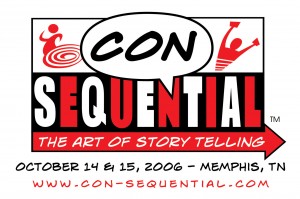
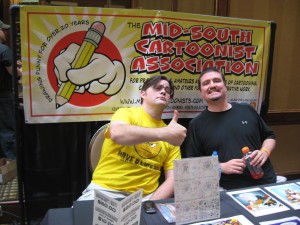
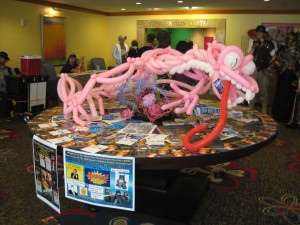
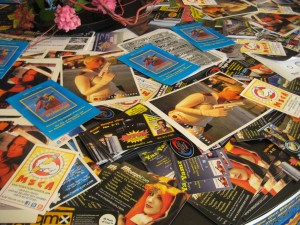
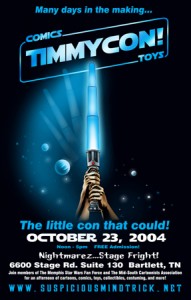
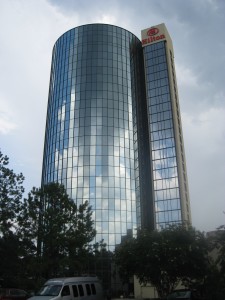
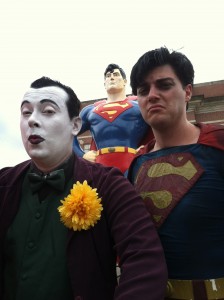
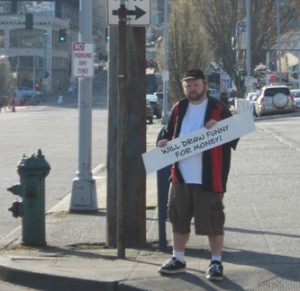
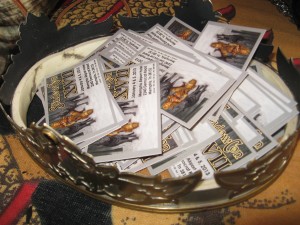
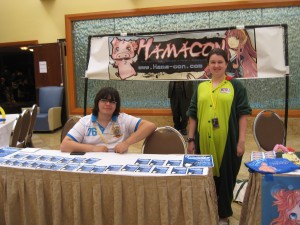
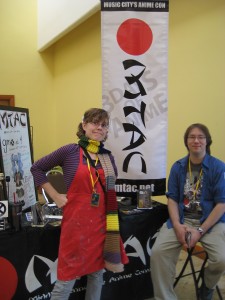
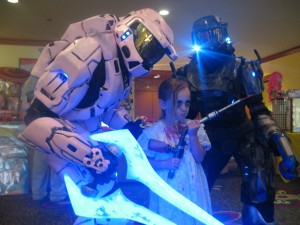
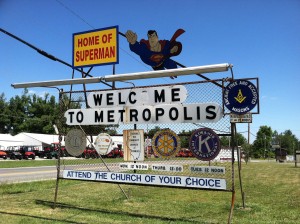
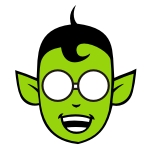

I’ve visited hundreds of gaming con websites and can’t tell you how many of them lack the dates and/or location on the main page. Personally I think both should be in the banner on every page! Also, I encourage con organizers to include the year in the date so it is obvious at a glance whether the site info is current. As you recommended, a post con update if you know the dates is great, if you don’t them at least state your intention to return: “See you all spring/summer/fall/winter 2013 for xyzCon!